Post
A catch
Save a catch to start your fishing logbook. You will be able to to share it with the community if yo want!
A fishing trip
Post an ad to go fishing with other fishermen
Save a catch to start your fishing logbook. You will be able to to share it with the community if yo want!
Post an ad to go fishing with other fishermen
Share a thought, a question with the community
My favorite cities
×Join our 520 fishermen and our 1 cofisherman in Ogmore in Vale of Glamorgan. The fishing forecast is currently 4.6. The most caught fishes here are the ling fish, the dab fish, the gurnard fish and the pollack fish. Come try the most famous fishing techniques like the pole feeder fishing, slabbing the bass, surfcasting or eel fishing in freshwater.
Our fishing forecast of Ogmore indicates the best time to go fishing in this city.
The Ling fish
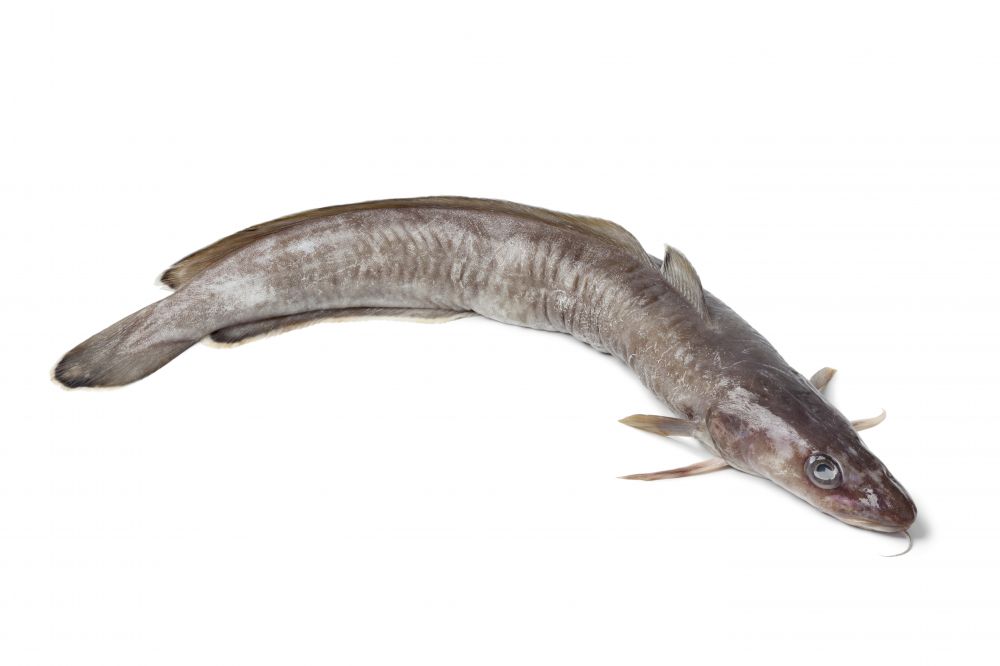
The Ling fish belongs to the Lotidae family. It generally measures 1.60 m in adulthood, but can reach a height of 2 meters and weigh up to 45 kg. Its longevity is estimated at 10 years for males and 14 years for females. Breeding takes place from March to July. The female can lay up to 60 million eggs. It can be fished all year round except in winter. The Ling has a cylindrical and very elongated body. The head is flattened with a prominent upper jaw. The fairly long chin barbell is larger than the diameter of the eye. This species has two dorsal fins and one anal fin. The first dorsal fin is shorter and often shows a black spot on the back, the second one runs the rest of the body to the tail. The black caudal fin has a white border on the tip. It is uniformly greenish brown in color, but slightly darker dorsally in adults. The young are often lighter, with its coloring more or less marbled orange.
The Ling fish is a famous fish you can catch in Ogmore.The Dab fish
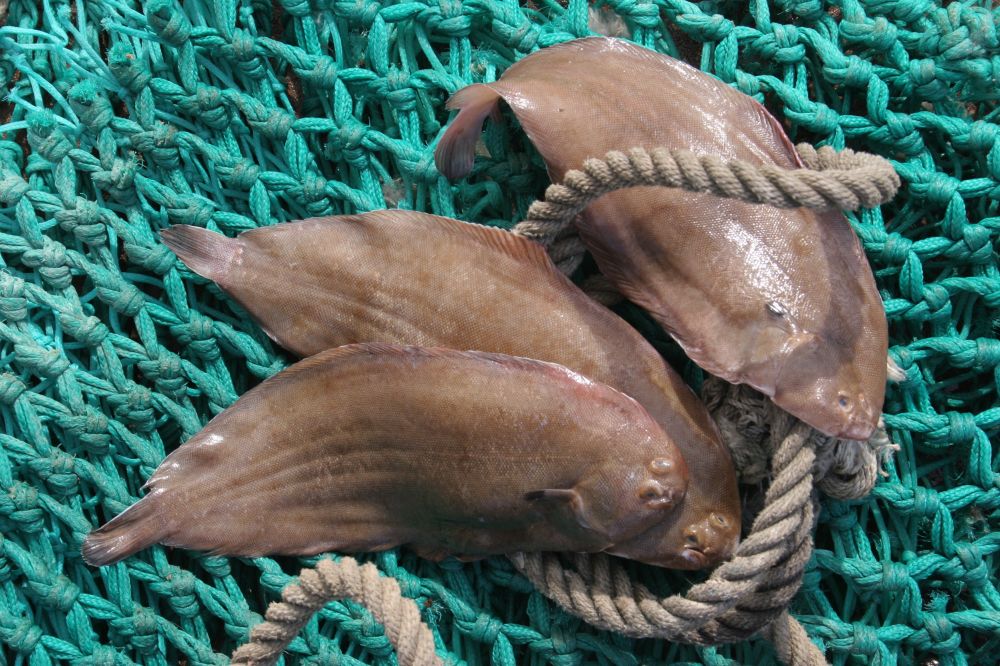
The Dab fish belongs to the Pleuronectidae family. It has an average size of 25 to 40 cm with an average weight of 1 kg. It has a lifespan of 12 years. The Dab fish breeds from February to April. The female lay up to 150,000 oocytes. The Dab fishing is open from October to Mars. the minimum catch size is 25 cm. The Dab fish, scientifically named Limanda Limanda, is a teleosteal species that belongs to the pleuronectidae or flatfish family. It has a flattened body with a more or less oval shape. The eyes of this dexterous fish are both generally located on the right side. The animal has a tiny mouth with small teeth. Its lateral line is curved at the pectoral fin. A characteristic feature that allows it to be easily distinguished from other species with similar morphology such as flounder. Thin scales cover the upper surface of the flounder, making its skin rough to the touch. The back is golden or yellowish brown in color and has dark spots. The belly or blind face is white. Varying from beige to light brown, the general color of dab allows it to blend in with the backgrounds.
The Dab fish is a famous fish you can catch in Ogmore.The Gurnard Fish
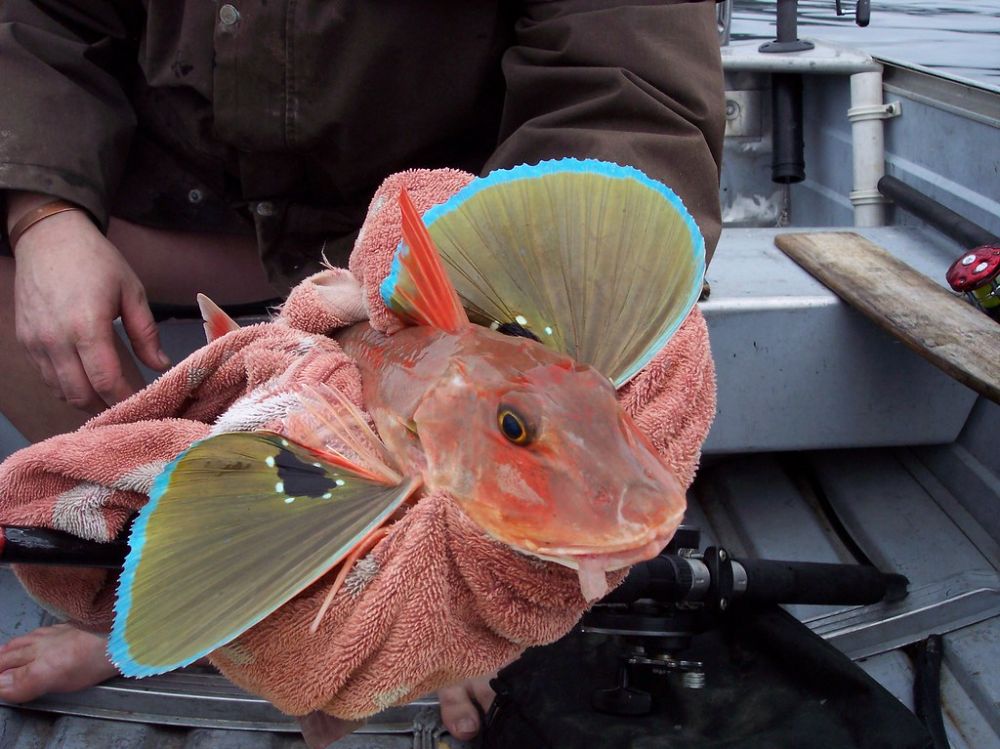
The Gurnard Fish belongs to the Triglidae family. their sizes vary from 250g to 1 kg. The maximum size recorded is 6 kg. The maximum age that was reached and measured in this fish was 15 years. It is fished in August in April. The gurnard can be identified by the way he moves on the bottom using the first 3 rays of his pectoral fins transformed into locomotor appendages allowing him to "walk" on the seabed. The longest rays of the pectoral fin reach the beginning of the anal fin. This fin, when the individual begins to swim, shows its underside decorated with a bright blue border. It may also have a fairly central black area with blue spots. The bluish coloration of the pectoral fades with age. This fish has two distinct ridges, the first of which is quite short. With a maximum height of 75 cm, but usually not exceeding fifty centimeters, it is the largest representative of the family. Its maximum referenced weight is 6 kg. As with other gurnards, the head is massive and armored. It has a snout extending far forward and ending in a curvature or a slight indentation. The spines on the lids and pre-lids are quite short. The general color varies from grey to reddish to brown with varying degrees of dark spots. Her belly is white. Small scales give it a very smooth looking integument. The lateral line, which is similar in color to that of the body, shows only a slight relief.
The Gurnard Fish is a famous fish you can catch in Ogmore.The Pollack fish
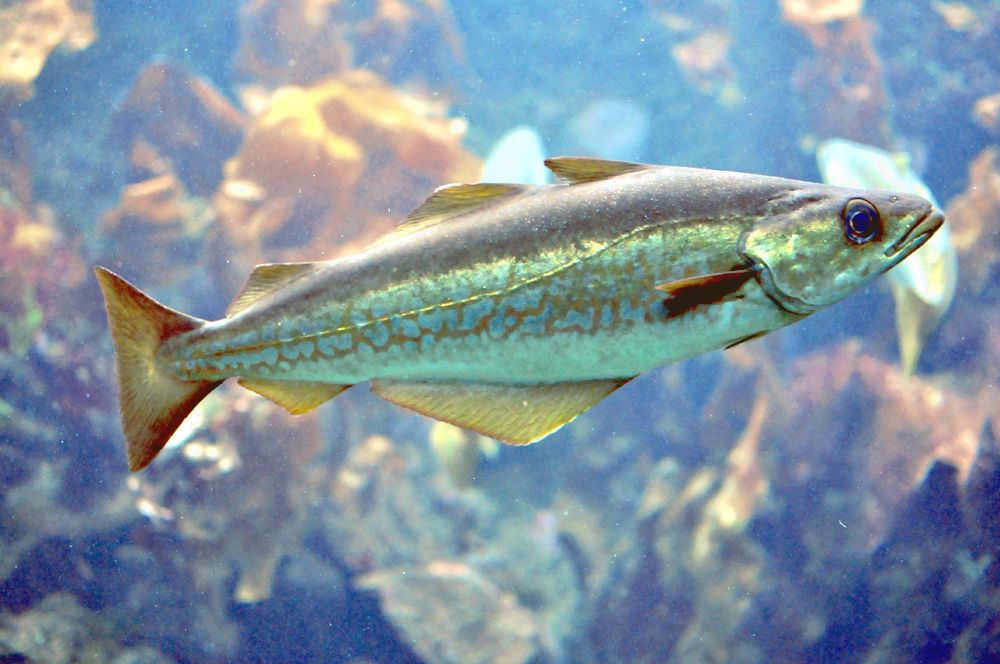
The Pollack fish belongs to the Gadidae family. Its size can reach 1.40 m for an average of 60 to 80 cm. The Pollack grows very quickly and lives between 8 and 10 years, while most pelagic fish have a lifespan of more than 20 years. Reproduction takes place in February March. Fertility can reach 4 million eggs. It can be fished all year round. Elongated body, covered with small scales, orange-yellow color, darker on the back, marbled in young individuals, bright yellowish white in adults. Prominent lower jaw, big eye. The dark-colored lateral line is curved at the pectoral fins, which makes it easily distinguishable from the black locus (Pollachius virens) in which it is straight. The Pollack, like many Gadidae, has three clearly triangular dorsal fins and two anal fins. It is one of the few Gadidae that does not have chin barbells. Juveniles are rather reddish brown with longitudinal stripes of blue-grey.
The Pollack fish is a famous fish you can catch in Ogmore.The Pouting fish
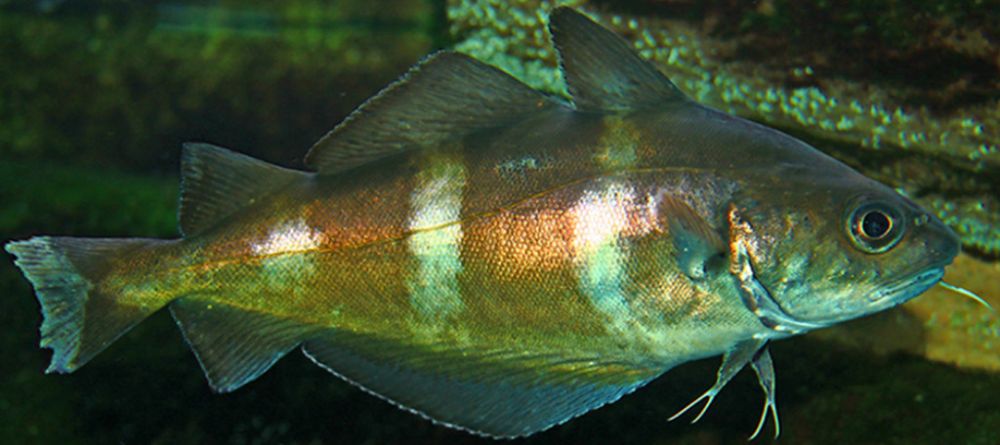
The Pouting fish belongs to the Gadidae Family. Its longevity is short: 4 years for a maximum size of 45 cm and a weight of about 1kg. Breeding takes place in March-April and is fished all year round. This small fish, generally 20/30 cm, rarely 45 cm, has an oval body, flattened laterally. Beige/pinkish white, slightly coppery, it can, especially when it is close to a poorly lit area (cave, wreck), have four to five wide dark vertical stripes. These bands may be absent in sunlight or on dead fish. The lower jaw is slightly set back, giving the pouting fish a characteristic profile with a small "nose". The eye is quite large, and a barbell is clearly visible under the "chin". The pouting fish has, like other Gadidae, three dorsal fins and two anal fins. A black spot is clearly visible at the base of the pectoral muscles.
The Pouting fish is a famous fish you can catch in Ogmore.Our fishing forecast of Ogmore indicates the best time to go fishing in this city.
Our fishing forecast of Ogmore indicates the best time to go fishing in this city.
Our fishing forecast of Ogmore indicates the best time to go fishing in this city.
